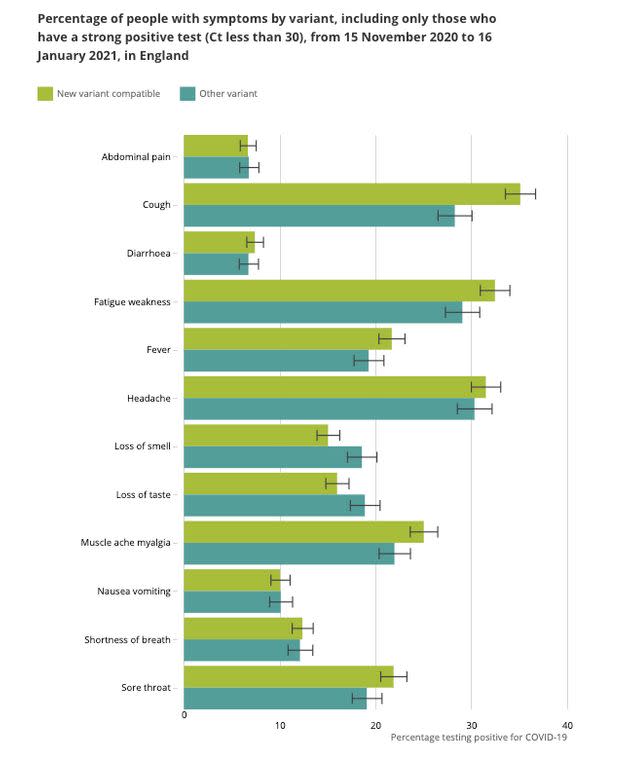Covid Symptoms: UK Variant Could Change Signs Of Infection

Coughs, sore throats, fatigue and muscle pain are more commonly reported symptoms of the new UK coronavirus variant, according to data from the Office for National Statistics (ONS). However, fewer people testing positive for the variant appear to be experiencing a loss of taste or smell.
The analysis looked at swab tests taken between November 15, 2020 and January 16, 2021, when the highest percentage of positive tests associated with the new variant were seen in London and the south east of England.
Where a Covid-19 test is carried out, swabs are tested for three genes present in the coronavirus: N protein, S protein and ORF1ab. According to the ONS, absence of the S-gene in these tests appears to have become a reliable indicator of the new UK variant.
People testing positive were asked about the symptoms they’d experienced. The analysis found that loss of taste and loss of smell were significantly less common in new variant compatible positive tests.
Other symptoms, however, were more commonly associated with this variant, with the largest differences noted for cough, sore throat, fatigue, myalgia (muscle pain) and fever, as well as a small increase in headaches.
There was no evidence of any difference in the prevalence of gastrointestinal symptoms (such as sickness and diarrhoea), shortness of breath or abdominal pain.

Commenting on the findings, Professor Lawrence Young, a virologist and professor of molecular oncology at the University of Warwick, acknowledged that mutations in the UK virus variant could influence the symptoms associated with infection.
“This variant is more transmissible and infected individuals appear to have higher virus loads which means they produce more virus. This could result in more widespread infection within the body perhaps accounting for more coughs, muscle pain and tiredness,” he said.
“The virus has 23 changes compared to the original Wuhan virus. Some of these changes in different parts of the virus could affect the...

 Yahoo Lifestyle
Yahoo Lifestyle 
